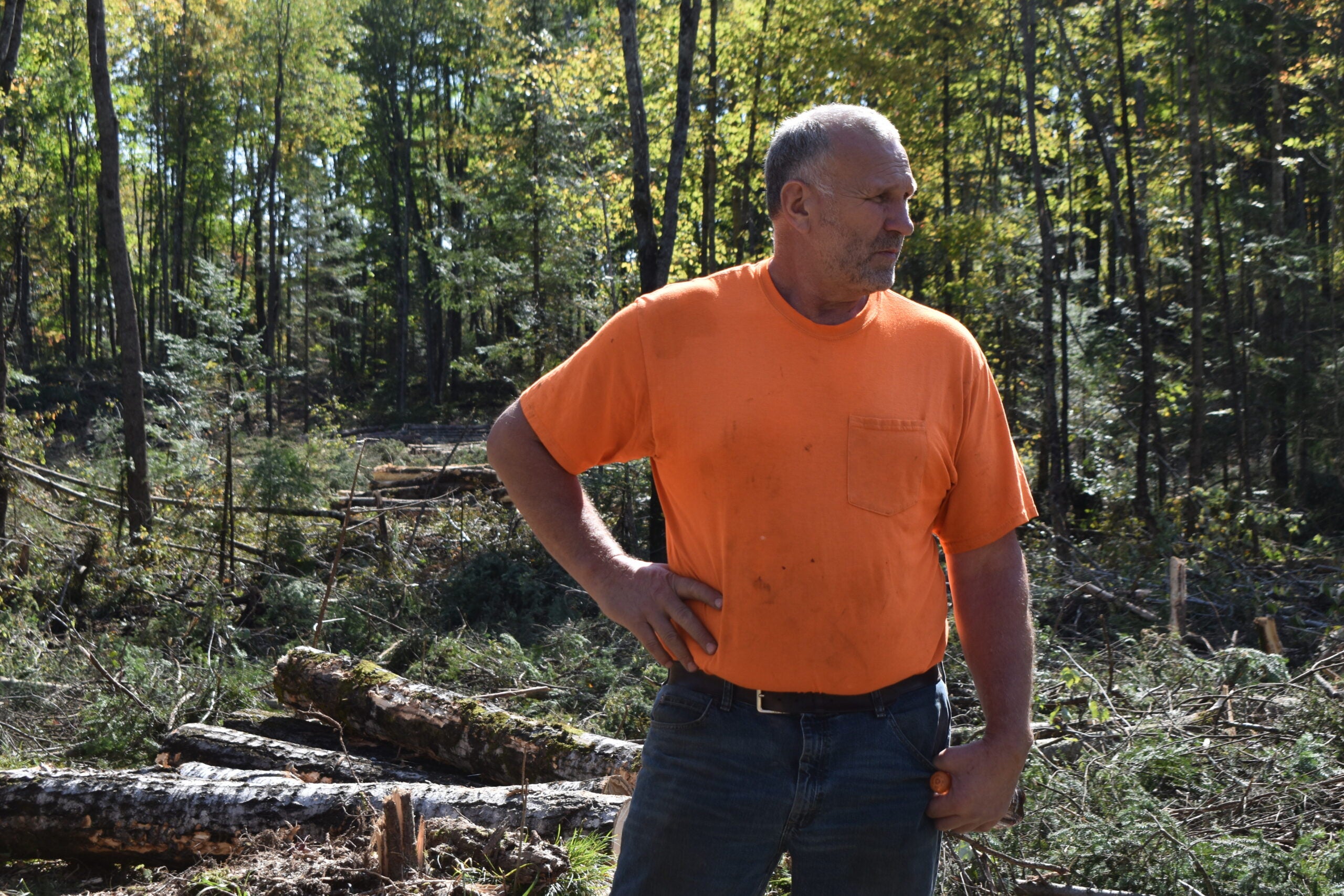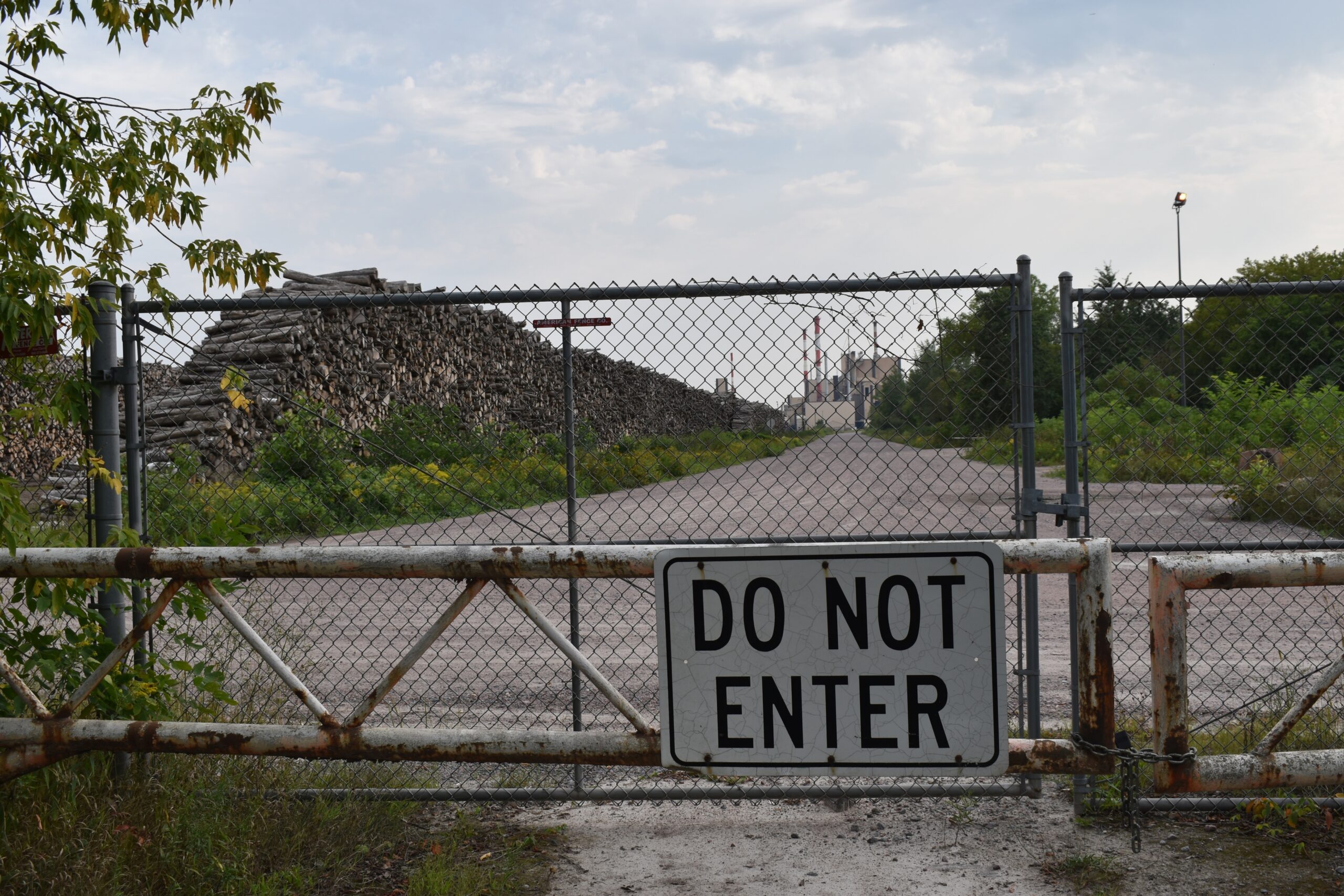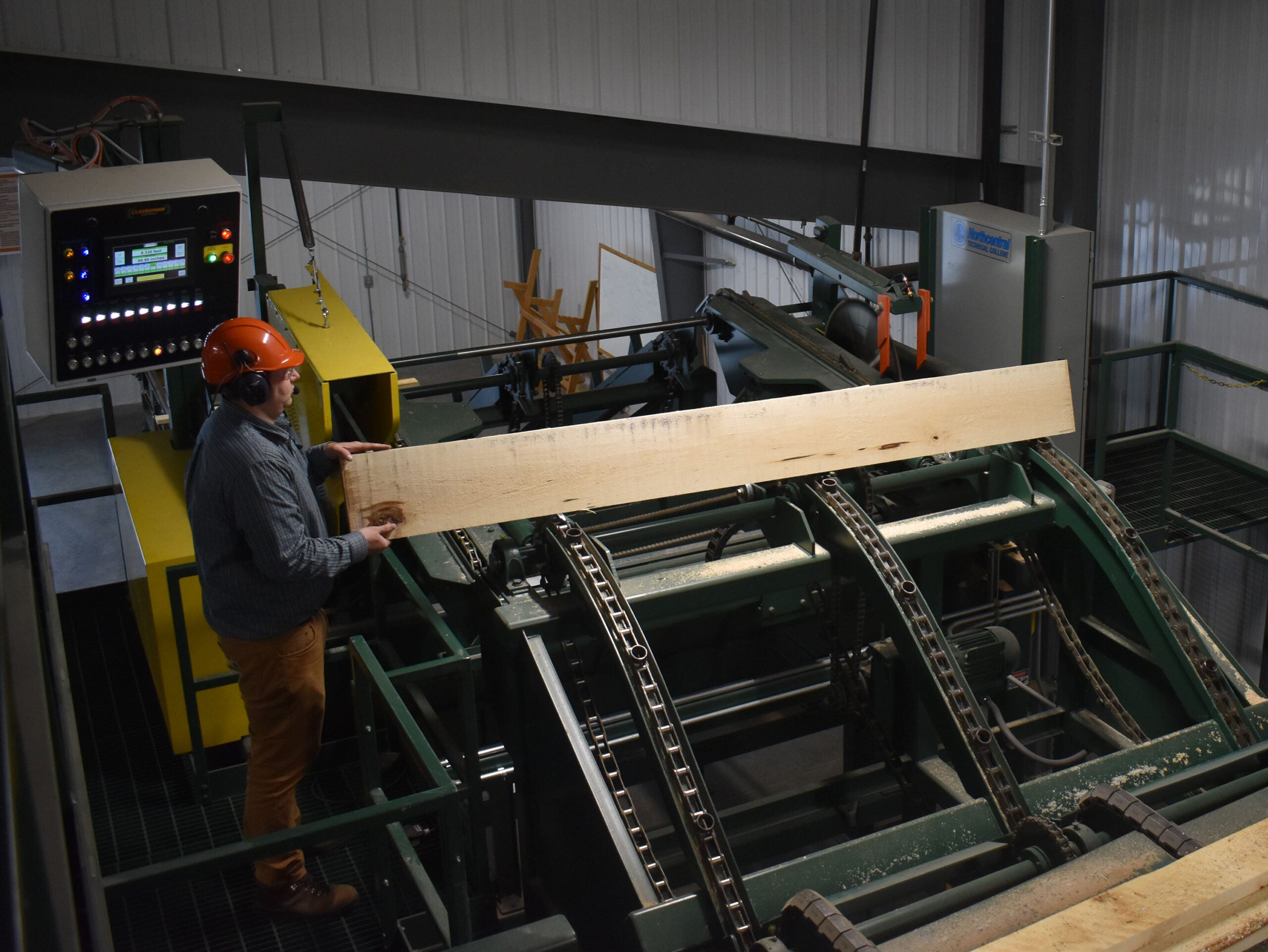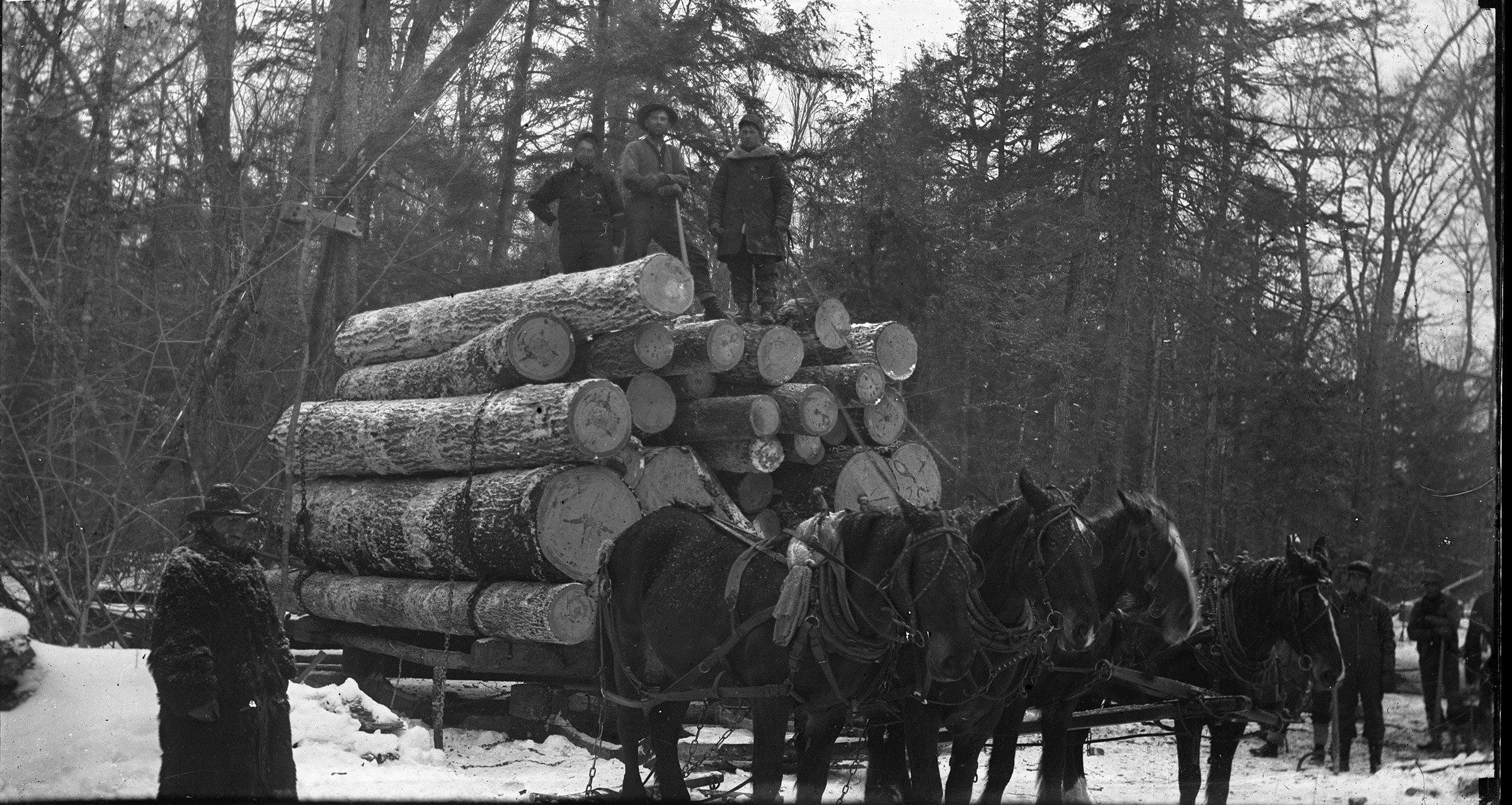A massive wall of hardwood is stacked just off the road at a logging site near Elcho, where Dennis Schoeneck is working. The area was once a farm — he found a line of stones that decades ago delineated its boundaries.
Now Schoeneck is harvesting aspen, white birch and other trees here. The landowner uses these acres for hunting, and Schoeneck’s work will make it easier to navigate for him and for the deer. Schoeneck, who founded Rhinelander’s Enterprise Forest Products in 1978, will sell the timber to area paper mills.
That’s the way the business has worked for more than a century. But today, paper mill closures in Wisconsin have removed some of the key buyers of pulp wood. That’s created a glut of supply in timber markets, and in turn has sent prices plummeting.
News with a little more humanity
WPR’s “Wisconsin Today” newsletter keeps you connected to the state you love without feeling overwhelmed. No paywall. No agenda. No corporate filter.
Schoeneck and other loggers who’ve spent their lives in the industry say these are some of the most challenging times their industry has ever seen. The logging bust in northern Wisconsin has forced some longtime loggers to pick up side jobs in construction or related fields. Some have left the industry.
“There’s no profit anymore. The profit is gone,” Schoeneck said. “Like always, we keep getting kicked down the road, and we keep trying to survive.”
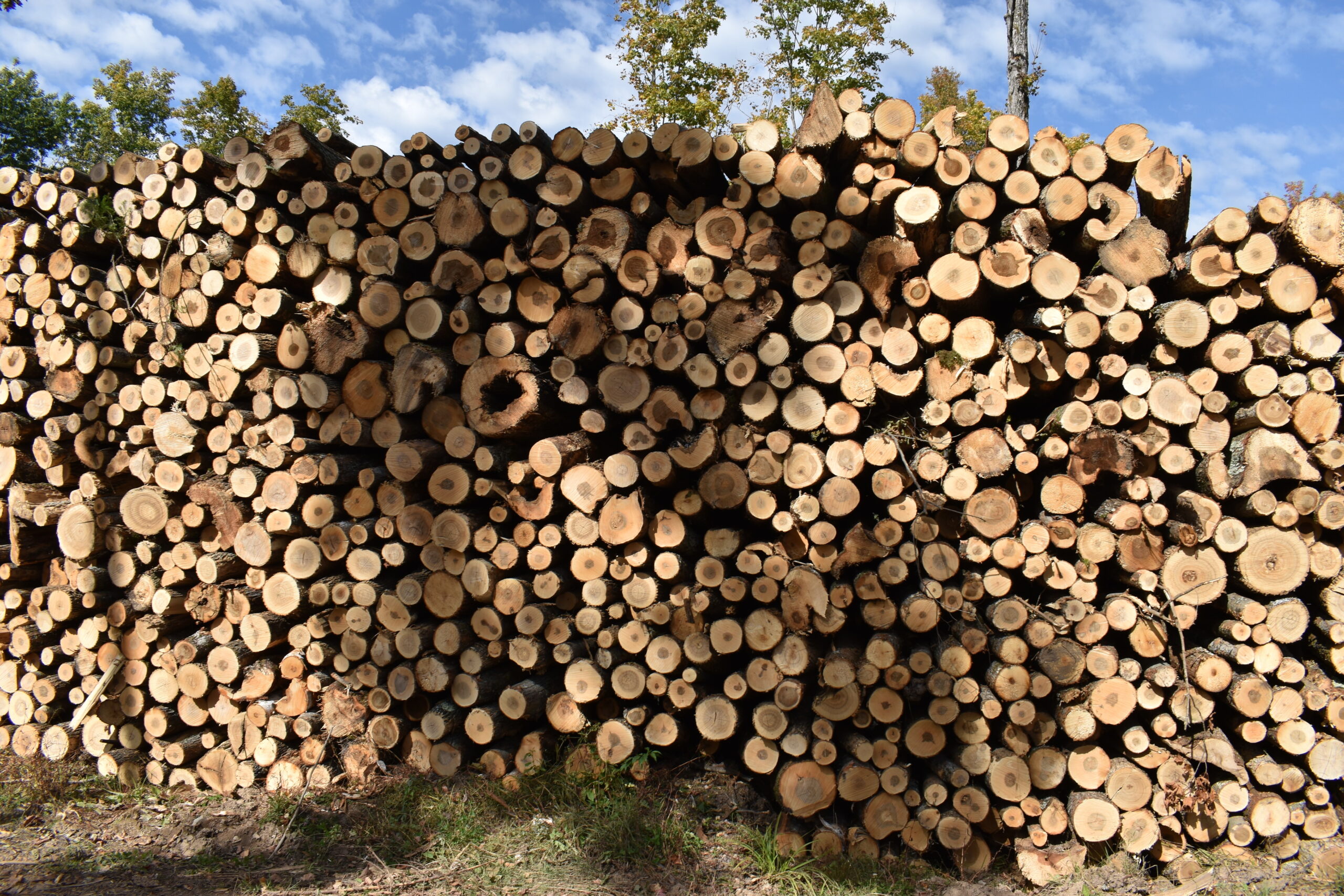
In the Northwoods, most of the issue stems from the 2020 closure of the Verso paper mill in Wisconsin Rapids, a massive buyer of timber. More recently, the mill in Rhinelander announced it would idle one of its machines, scaling back its production. And a beleaguered century-old mill in Park Falls that closed in 2019, reopened in 2020 and closed again in spring 2021, was bought last month by a company that may seek to liquidate it.
“The logging industry is in complete freefall,” said Michael Bablick, mayor of Park Falls. “Absolute devastation — especially if Wisconsin Rapids doesn’t start up.”
A year ago, industry leaders and politicians in both parties were enthusiastically behind the idea that a newly formed nonprofit cooperative of timber professionals could buy and operate shuttered mills, creating a sustainable source of demand for their products. Schoeneck is the president of the Timber Professionals Cooperative and helped drive that effort. But now that project is stalled as local mills entertain other offers and a political stalemate holds up potential state funding.
‘There are guys dropping out now’
In Wisconsin, at least, loggers know the exact day their troubles began. It was June 9, 2020, when the Ohio-based Verso announced it would idle its Wisconsin Rapids mill.
“I’m still living it,” Schoeneck said. “My life is still changing because of that.”
The Verso mill in Wisconsin Rapids was the largest buyer of timber in the upper Midwest. Its closure was a blow to Wisconsin Rapids, which had built its identity around the 1,000-acre facility that employed some 900 people. But its effects have been felt hundreds of miles away, too.
“It’s not just the local economy of Wisconsin Rapids,” said Rebekah Luedtke, executive director of the Wisconsin County Forests Association based in Merrill. “It’s not just the people who work in that mill. The ripple effect is enormous.”
Including foresters, loggers and haulers, the industry employs about 64,000 people in Wisconsin, said Henry Schienebeck, executive director of the Great Lakes Timber Professionals Association. Most are in small, family-owned companies, often spanning generations. Schoeneck’s son Troy, whose truck has the license plate LOGGIN, is part of Enterprise Forest Products.
The number of timber professionals has been in long-term decline — Schienebeck estimates that 15 years ago, it was closer to 120,000. But the last year specifically has been a crisis.
“We as loggers create as many efficiencies as we can,” said Matt Jensen of Whitetail Logging. “Those efficiencies used to make me more profitable. Now it’s a pure necessity of staying viable.”
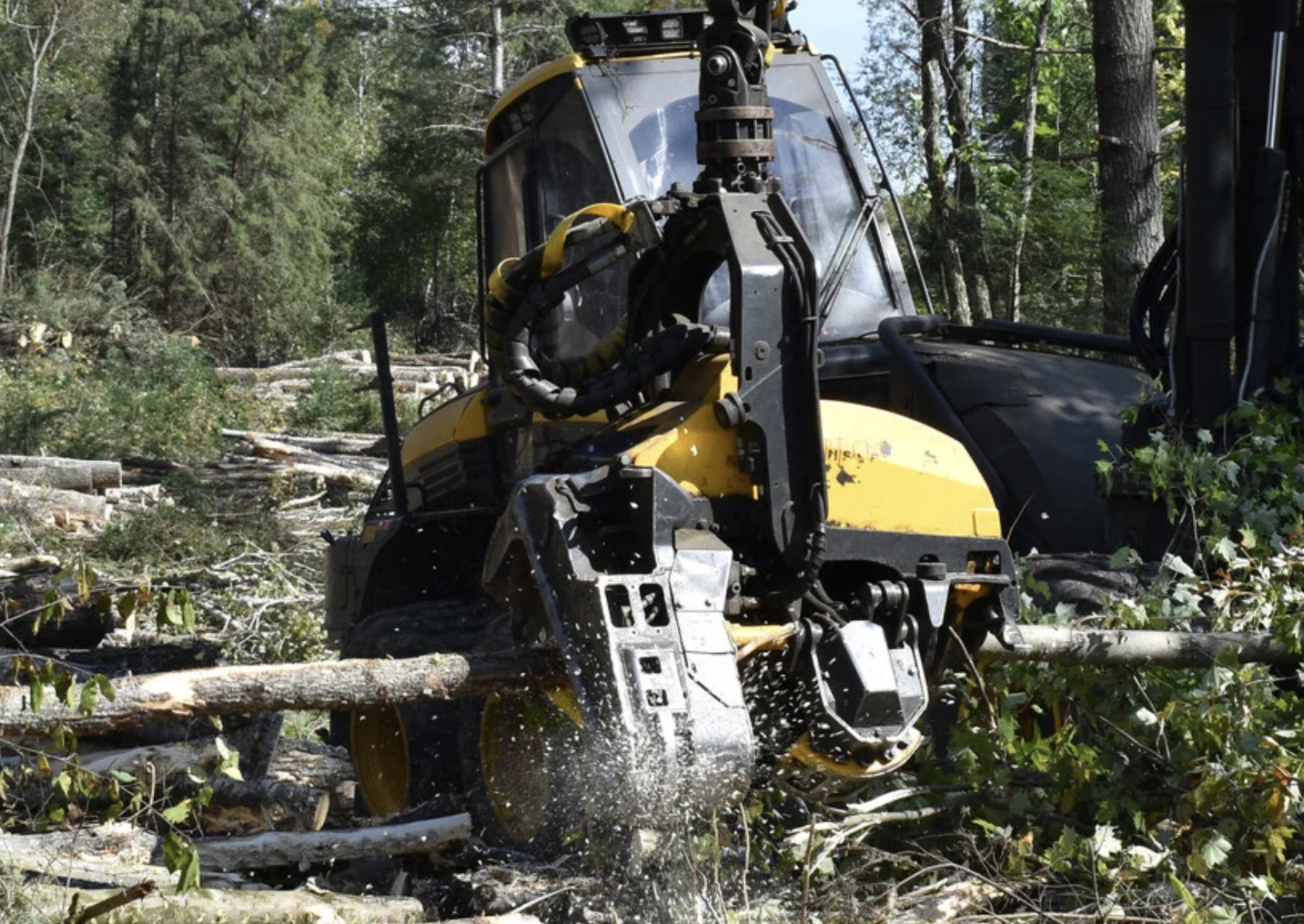
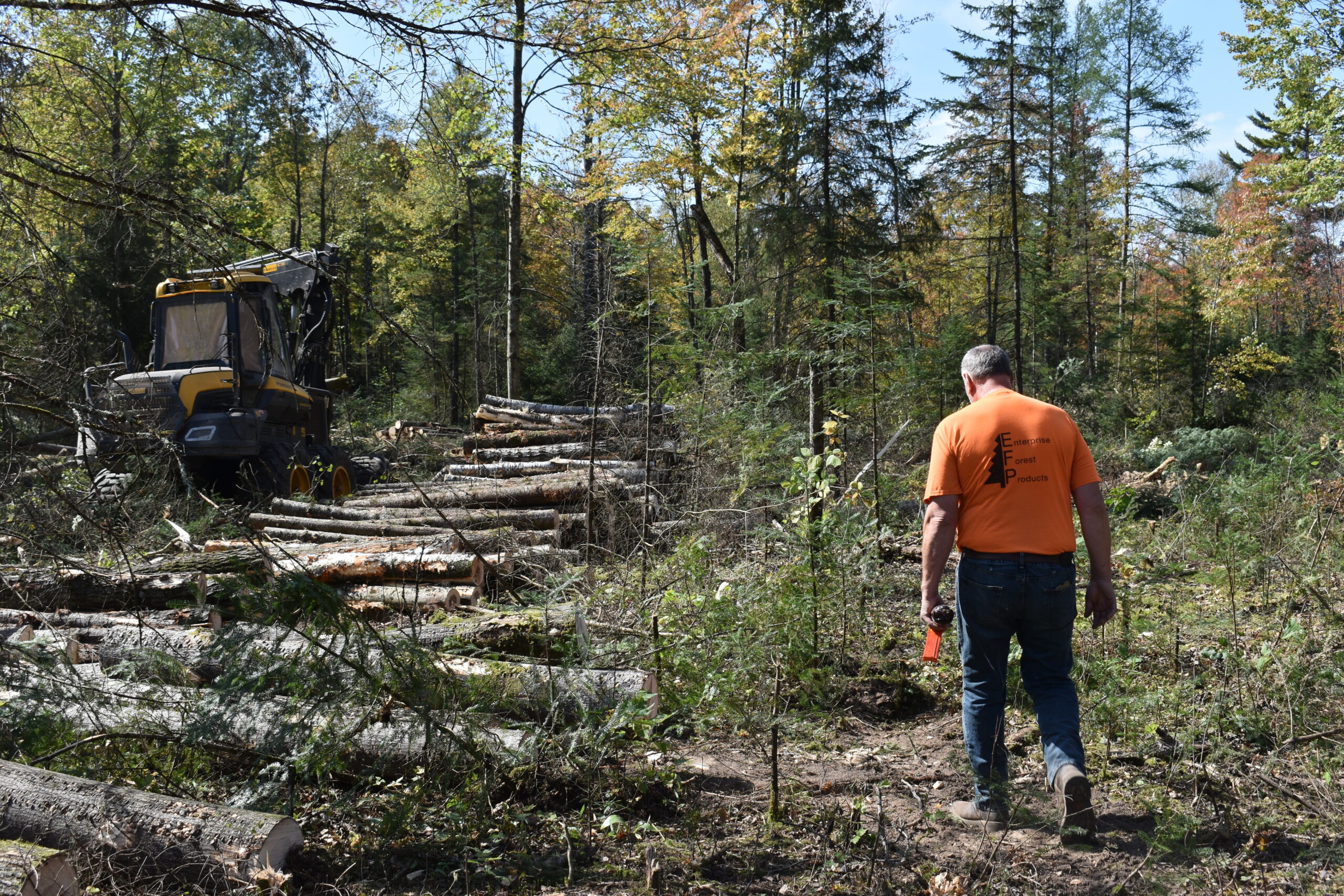
For Jensen and others, staying afloat has meant not putting funds into retirement and other benefits. Schoeneck said after a logging day that begins at 4 a.m. and lasts until 2 p.m., he’ll often pick up odd jobs in the afternoon and evening.
Sometimes, Schoeneck said, it’s hard not to “scratch my head and go, ‘Why am I doing this when there’s help wanted everywhere for 20 bucks an hour?’ Are you kidding me? Do you know how simple my life would be?”
But logging is an identity as much as a job. Schoeneck was 11 when he bought his first chainsaw at a logging congress in Antigo. He values working for himself and working in the forests. At one point, he described himself as a “loved-to-log type of guy.”
And for the vast majority of loggers, even quitting the business isn’t so simple. The heavy equipment logging requires, like the harvester that measures and cuts timber to size on site in Elcho, is worth hundreds of thousands of dollars. Most loggers lease equipment from local banks, which means they have monthly payments they have to make whether their businesses are profitable or not
The downturn has hit those Northwoods banks, too. If a logger stops making payments, the bank can repossess the equipment. But the value of that equipment has plunged, and there’s little or no secondary market for it.
Even Schoeneck sometimes feels trapped.
“There are guys dropping out now,” Schoeneck said. “I even wonder, do we keep wearing this equipment out just to make our payments?”
Some Northwoods counties depend on logging for revenue
The ripples go even further, beyond loggers and their lenders and all the way to public services. Many Northwoods counties rely on the revenues from forest management to make their budgets work. About 20 percent of the wood Verso bought, Luedtke said, came from county forests.
“When you take 20 percent of the wood completely out of the picture, there’s going to be a gap that needs to be filled,” she said.
In the near term, budget losses for places that rely on logging income could mean tax hikes, service cuts or both.
And it’s clear that counties are already feeling the effects of the industry’s slump. In Price County, for example, publicly available data show that in spring 2019, the county offered 17 tracts of forest land up to logging contractors. It got bids on 15 of those tracts, and on average the bids were 29 percent higher than the advertised value. This spring, Price County offered up 18 tracts of land for bids. It got no bids at all on seven of the 18, and the bids it did receive came in at an average of 28 percent below the advertised value.
Farther out, professionals like Luedtke and Henry of the Great Lakes Timber Professionals Association say the loss of logging capacity could make Northwoods forests themselves less healthy. Managing forests doesn’t just make them usable for recreation; it also helps protect forests from invasive species and fires.
“I think we’re going to see some major impacts on the landscape in about five years,” Luedtke said. “We’re just not going to be able to cut as much. It means we’re going to start having more problems with forest diseases and insect and invasive species. And that’s just going to create more and more strain.”
For Verso, no rush to sell or reopen Wisconsin Rapids mill
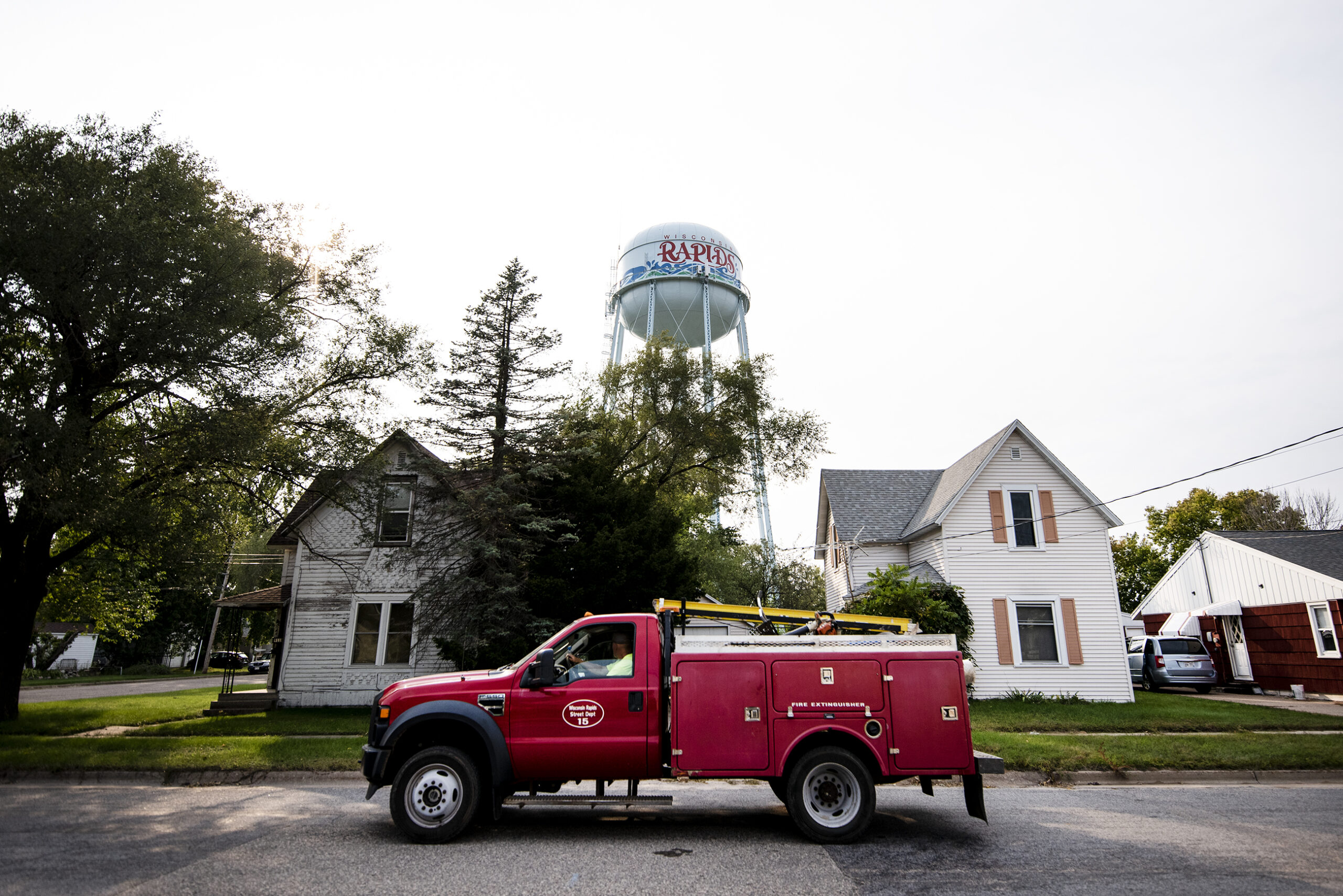
On July 9, Gov. Tony Evers vetoed a bill designed to help the timber cooperative purchase the Verso and Park Falls mills by funding $65 million in state loans. The Republican bill would have paid for the loans with federal coronavirus aid money; Evers said that might not have been legally allowable and proposed an alternative. Republicans rejected the alternative.
Just days later, on July 15, a private equity firm called Atlas Holdings made its own offer to buy Verso. It had the effect of halting efforts by the cooperative to purchase the mill.
But industry analysts and some who’ve been involved in talks with Verso say the failure of the “mill bill” might not have made much of a difference. In discussions, Verso executives were always lukewarm to the notion — which, after all, hinged on Verso agreeing to sell the mill to the cooperative. Meanwhile, the company’s share price today is well above where it was before the pandemic.
“In terms of Verso’s outlook to its shareholders, it probably is not feeling much pressure,” said Paul Fowler, director of the Wisconsin Institute for Sustainable Technology. “Aside from how it looks to the communities in which they’ve operated and idled mills, they’re probably sitting in a good position.”
Fowler said his expectation is that the mill will sell. But for the moment, Verso has no particular incentive to hurry. On Sept. 21, two months after the offer became public, Verso in a statement said a deal was possible, and it would “only consider a potential transaction if Atlas meaningfully increased its offer.”
That leaves loggers waiting, continuing to scrape by or deciding to leave the business.
There have been some efforts by lawmakers to provide a backstop for those affected by the downturn. U.S. Sen. Tammy Baldwin, D-Madison, has been among those touting a federal aid program for loggers who lost profits do the pandemic. It’s the first time in decades that loggers have been eligible for any sort of targeted federal assistance. But loggers say the reality of the program has been somewhat less than what was sold. Most say the federal payments of up to $125,000 won’t cover the losses they’ve taken in the last year and a half. And some say the program’s requirements are set up in a way that makes them ineligible even if their businesses took big hits due to pandemic closures.
It’s a precarious position for the industry, and most say the longer the downturn lasts, the more lasting the effects will be. What frustrates many in the industry the most is the disconnect between what makes sense for Verso’s share price and what the rest of Wisconsin’s economy needs.
“To them, it’s just a line on a piece of paper,” Schienebeck said. “For us, it’s not just a line on a piece of paper. It’s everybody’s life.”
Wisconsin Public Radio, © Copyright 2025, Board of Regents of the University of Wisconsin System and Wisconsin Educational Communications Board.

